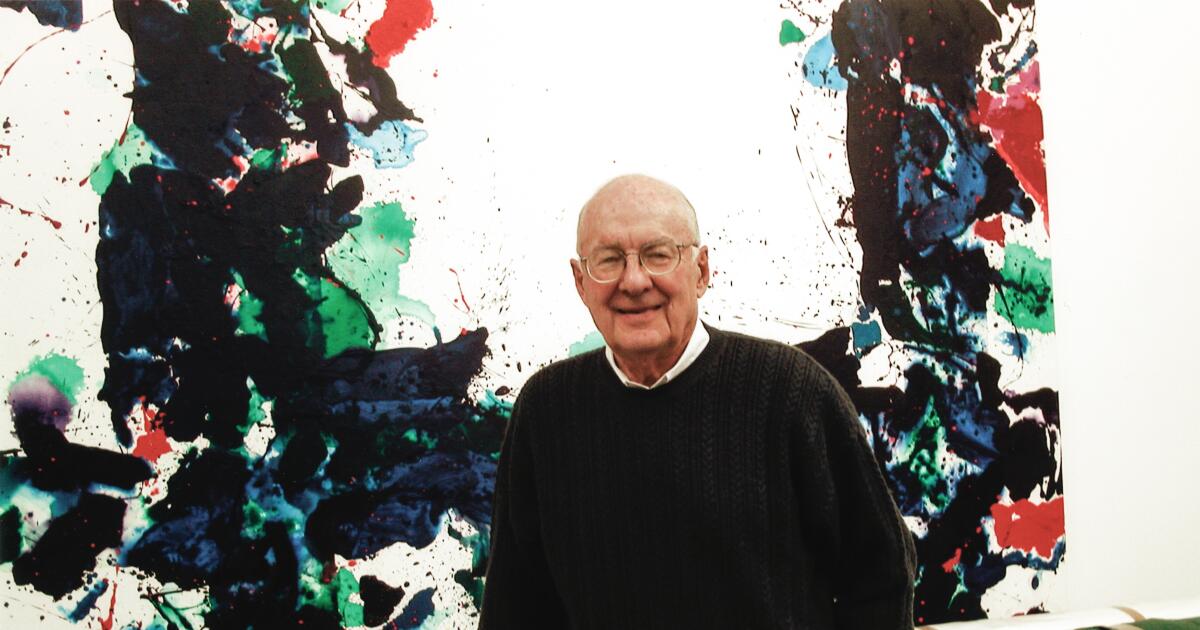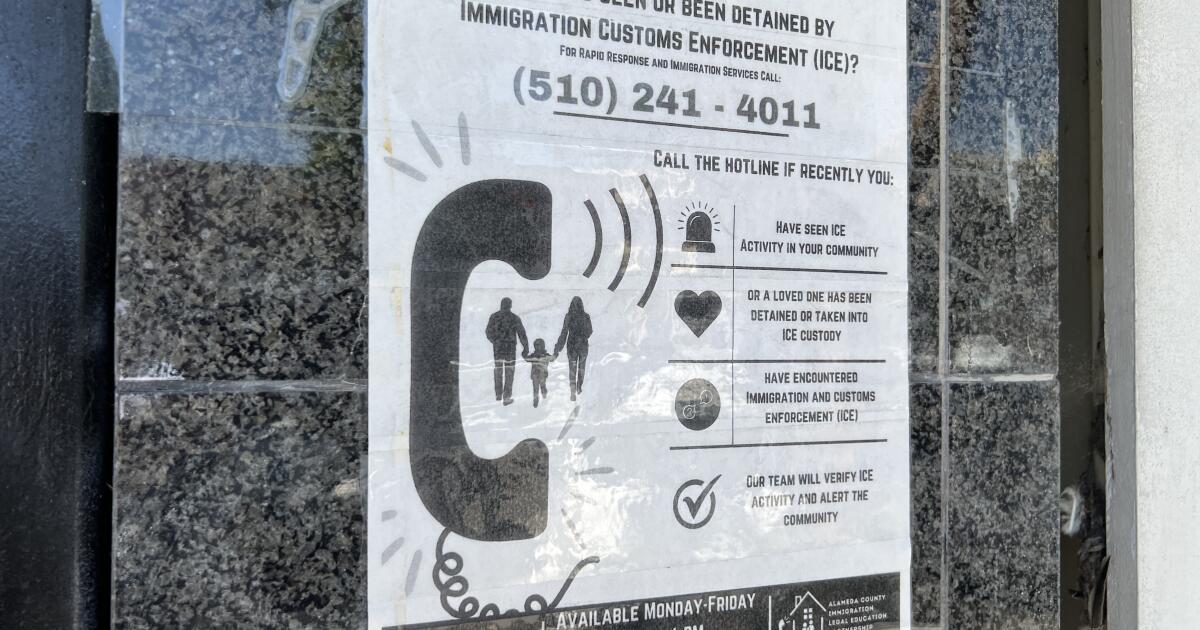For 22 days, immigration enforcement officials have conducted sweeps in communities across the Los Angeles region, arresting an estimated 722 people between June 1 and June 10 alone.
For families and immigrant advocacy groups, determining the location of detainees has been difficult.
“In some cases it’s been 72 hours where we have not been able to identify where their family member is and when we do, sometimes they’re in the [Adelanto Detention Center],” said Flor Melendrez, executive director of CLEAN Carwash Worker Center, a nonprofit labor advocacy group.
“Sometimes it’s too late and [the detainee is] calling from the Ciudad Juárez or Tijuana, where they have already been deported, and that’s within 72 hours.”
CLEAN has focused on representing workers in the car wash industry for 18 years, but in the last three weeks the group has shifted to helping families find workers who were taken during a raid and guide them toward supportive and legal services.
“When the children are asking if we are going to bring their parent back home and we have no way to even respond [with] where they are, it’s heartbreaking,” Melendrez said.
Here are the immediate steps you should take if your relative is arrested and detained by immigrant enforcement officials:
Reach out to these organizations for help
If your loved one was detained by immigration enforcement agents, reach out to immigrant advocacy groups that can provide referrals, information, resources (such as food and financial assistance) and, in some cases, direct support.
A network of local rapid response hotlines has been established to document immigration enforcement activity and help connect those affected to legal services and other types of support, according to the California Collaborative for Immigrant Justice.
The following local rapid response hotline numbers are provided by the California Immigrant Policy Center and the ACLU Southern California:
After or before you’ve made the call for help, gather these important documents that pertain to the detained family member:
- Birth certificate
- Medical records
- Past visa applications
- Receipt and approval notices for any immigration applications the person has previously submitted
You’ll also need to gather the following personal information that will be used either by you or your legal representation to locate your detained loved one:
- A-Number, also known as “alien registration number,” which is assigned by the Department of Homeland Security to noncitizens who apply to live and work in the U.S. The seven- to nine-digit number can be found on a green card, work permit or other immigration document.
- Country of birth
- Personal information including full name and birthday
Your options when searching for legal representation
There is a coalition of organizations and pro bono attorneys working to support individuals who have been detained, but it can be challenging to get immediate help because there is an overwhelming need.
Because of the high demand for legal help, Public Counsel, a nonprofit public interest law firm, is currently prioritizing cases based on extreme need and often can only take a bond case or help with locating a detained person.
Public Counsel warned that families who have not been affected by immigration enforcement but need help with their immigration status should look for a lawyer now and begin the immigration process in case they are detained in the future.
Your options for legal help include:
- Immigrant Defenders Law Center, (213) 833-8283
- Public Counsel, (213) 385-2977
- Legal Aid Foundation of Los Angeles, (800) 399-4529
- Lalama Immigration Law, (833) 838-8472
- Esperanza Immigrant Rights Project, (213) 251-3505
- Immigration Center for Women and Children (L.A. office), (213) 614-1165
- El Rescate, (213) 387-3284
- Central American Resource Center of Los Angeles, (213) 385-7800
- USC Gould School of Law Immigration Clinic, (213) 821-9627
- International Institute of Los Angeles, (323) 264-6217
You can also search for an immigration lawyer through the American Immigration Lawyers Association online locator tool.
How to spot a fake immigration attorney:
Scammers try to confuse immigrants into thinking they’re an attorney by calling themselves a notario, notary public, accountant or consultant, according to the Federal Trade Commission.
In Latin American countries, a notario or notary public is an attorney or has legal training, but that’s not the case in the United States.
How to protect yourself from the scam:
- Do not hire an immigration consultant or a notary. Only lawyers, accredited representatives and recognized organizations can give you legal advice or represent you in immigration court. Immigration consultants — who may call themselves immigration experts, notarios, notaries public or paralegals — cannot do so, according to California Atty. Gen. Rob Bonta’s office.
- Do not give your original important documents to anyone, unless you see proof that the government requires the original document, according to the FTC.
You can verify whether a lawyer is legitimate by searching for them on the State Bar of California website and determining if they have an active law license.
How to locate your detained family member
If your relative is arrested in Los Angeles, they will likely be taken to the federal detention center in downtown Los Angeles — sometimes called “B-18” — which is located at 320 Aliso St., according to Public Counsel.
Call the detention center at (213) 830-4900 or (213) 830-7911 and provide the operator with your relative’s A-Number, according to Public Counsel.
You can also try locating your relative by using the Department of Homeland Security’s ICE Detainee Locator System online or call (866) 347-2423, but be warned that immigration officials often won’t provide detainee information over the phone and might not update their online data regularly.
Whether you use the ICE online locator or call, you’ll need to provide the detainee’s A-Number and country of birth, or their full name and both country and date of birth.
If you cannot locate your family member through this process, you can contact the ICE Enforcement and Removal Operations field office closest to where the person was picked up.
There are three field offices in California:
- Los Angeles Field Office: 300 North Los Angeles St., Room 7631, Los Angeles, CA 90012; (213) 830-7911. This office’s area of responsibility includes Los Angeles, Orange, Riverside, San Bernardino, Ventura, Santa Barbara and San Luis Obispo counties.
- San Diego Field Office: 880 Front Street, #2242, San Diego, CA 92101; (619) 436-0410. This office’s area of responsibility includes San Diego and Imperial counties.
- San Francisco Field Office: 630 Sansome Street, Room 590, San Francisco, CA 94111; (415) 365-8800. This office’s area of responsibility includes Northern California, Hawaii, Guam, Saipan.
Another option for locating your detained relative is contacting their country’s consulate.
Here is a list of local consulate offices and contact numbers.
Several organizations are offering free delivery of groceries and necessities to families affected by recent immigration enforcement.
Follow the organization’s websites and social media accounts for up-to-date information on resource availability:
- The YMCA is providing confidential delivery of groceries and other essentials to affected families. Contact [email protected] or call (323) 244-9077 for support.
- InnerCity Struggle is an East Los Angeles organization that assists with groceries and rental assistance. Call (323) 780-7605.
- No Us Without You offers food to undocumented community members. You can fill out their eligibility form for assistance online.
- Comunidades Indigenas En Liderazgo (CIELO) is delivering food to Indigenous families it serves and those in the community who are afraid to go out for fear of being caught up in ICE raids. To see if you qualify for assistance, fill out their online contact form.
- Raíces Con Voz is a grassroots organization in Boyle Heights that is providing grocery and essential items to those in the community who feel they are unable to leave their homes due to recent ICE activity. For assistance, send the group a direct message on Instagram.
- World Harvest Charities and Family Services’ Cart With a Heart program is providing families who are sheltering in place with grocery carts full of fresh produce, protein, pantry supplies and more. For assistance, call (213) 746-2227.
- La Puente Mutual Aid delivers essentials to community members without asking for a name or address of the person in need, for free. Email [email protected] with a code name, your neighborhood, a safe drop spot and items needed.
- The El Monte Business Alliance is offering food assistance and baby products to those in need through their new program El Monte Cares. For help, call (800) 622-4302.
- Immigo Immigration Services delivers necessary items to families in need. Call (818) 730-0140 for assistance.

